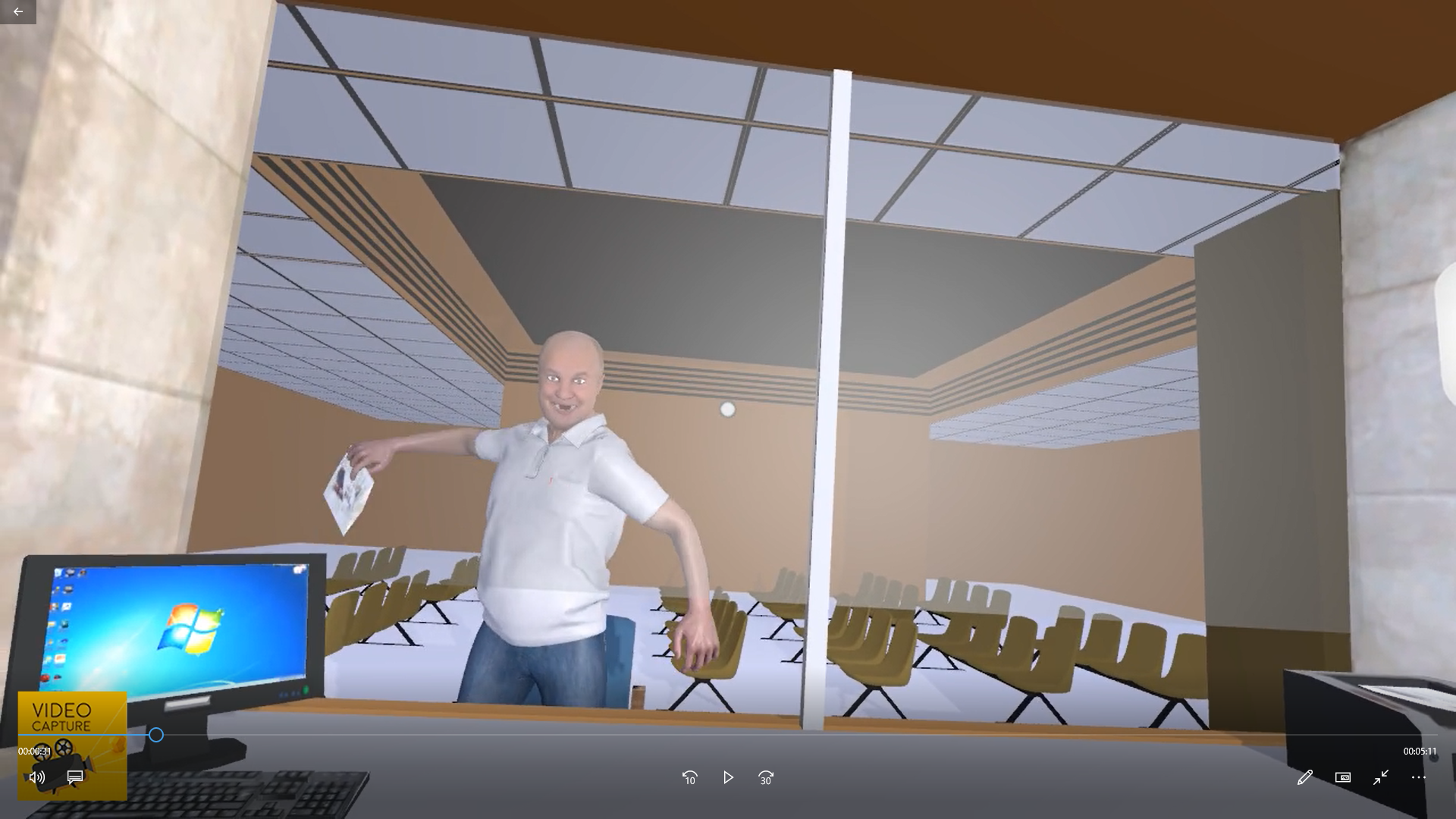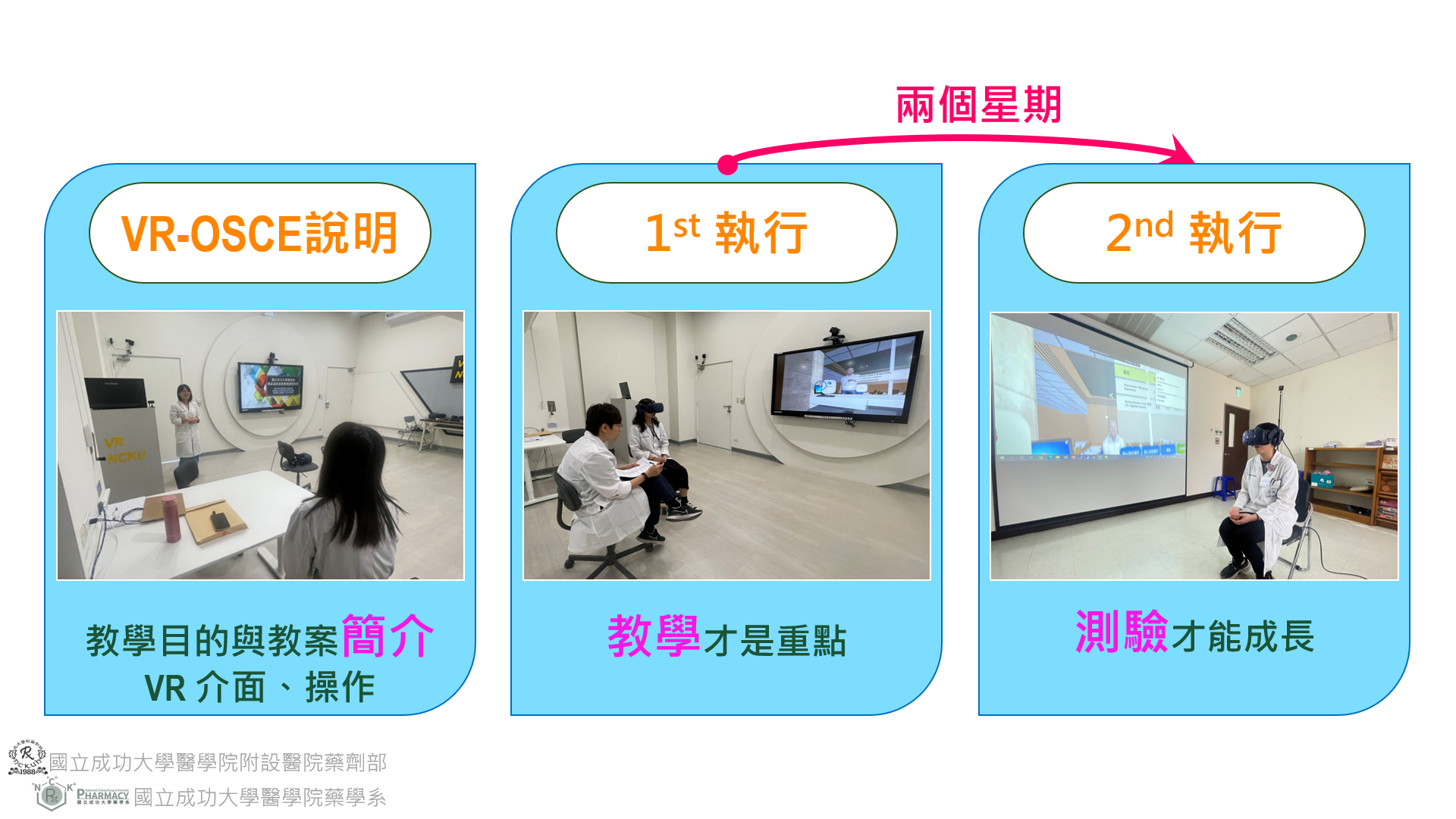Virtual clinical teaching system:Using virtual reality to improve the medication consultation and communication skills of postgraduate year pharmacists
Lu-Hsuan Wu, Ya-Fei Han, Pei-Yu Chang, Wen-Liang Lin, Ching-Lan Cheng, Pharmacist, Dept. of Pharmacy
Medication consultation is a mandatory practice for pharmacists. Rare but critical clinical conditions that are controversial or difficult to solve can be complicated to evaluate during a conventional objective structured clinical examination (OSCE). To evaluate such conditions, time, space, and labor constraints must be considered. NCKU Hospital has formed an interdisciplinary team with Tainan University of Technology to provide a virtual reality (VR) learning environment that enables repeated practice and error- and stress-free learning.
1.VR environment: A 3D-VR environment has been established to simulate the drug information center in NCKU Hospital. Outpatients and equipment in the VR environment are modeled based on the same medical records, medicine bag information, and drug information in the hospital. Dialogues are synchronously converted into text files through voice recognition in VR-OSCE to evaluate the responses of postgraduate year (PGY) pharmacists.
2.Teaching-plan design: Teaching plans are designed for PGY pharmacists that have worked for at least 1 year to refine their professional communication skills and learn to handle clinical drug dispensation errors that may have serious consequences. Teaching-oriented tips are placed in VR-OSCE to provide standard procedures for handling such situations, thus facilitating consistent teaching.
3.Executing VR-OSCE:
(1)Test 1: The PGY pharmacists complete the test by referring to “tips.” The instructors teach synchronously and provide feedback to the PGY pharmacists after they complete VR-OSCE.
(2)Test 2: Two weeks after Test 1, PGY pharmacists complete this test in 15 min without “tips” before conducting reviews and receiving feedback.
A total of eight PGY pharmacists participated in the tests. The grades of Test 2 were significantly higher than those of Test 1 (95.2 ± 3.1 vs. 83.3 ± 4.5, p < 0.05). Regarding learning satisfaction, all the PGY pharmacists indicated that VR-OSCE effectively improved their professionalism and ability to respond to the needs of real patients. Moreover, the PGY pharmacists considered VR-OSCE to be realistic and effective in raising their learning interest. Overall, medication consultation and communication skills require experience, and VR-OSCE enabled the pharmacists to repeatedly train their skills without time or space constraints. VR-OSCE can incorporate artificial intelligence to facilitate smart teaching.


